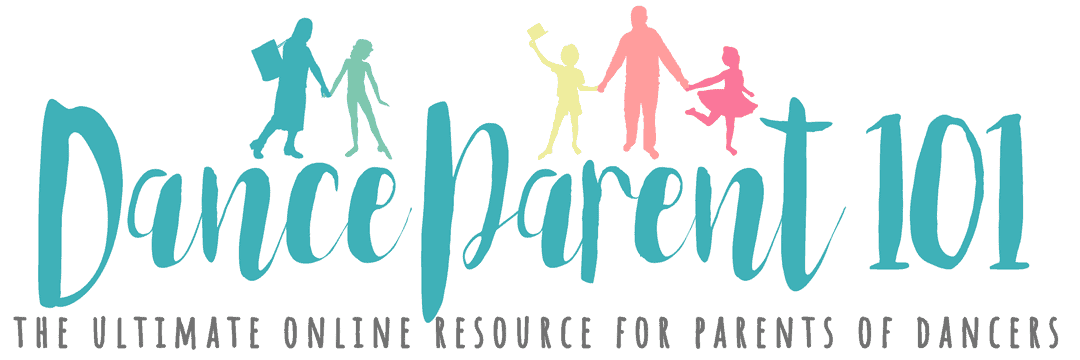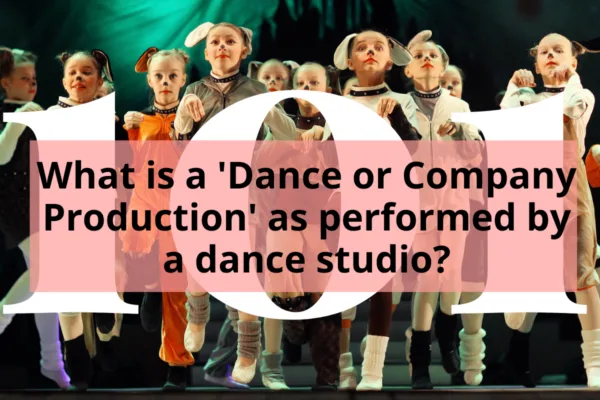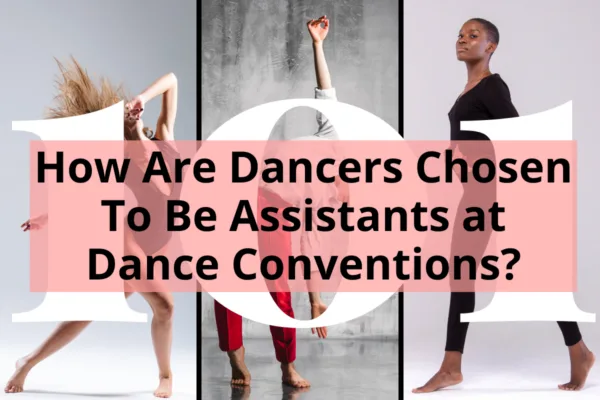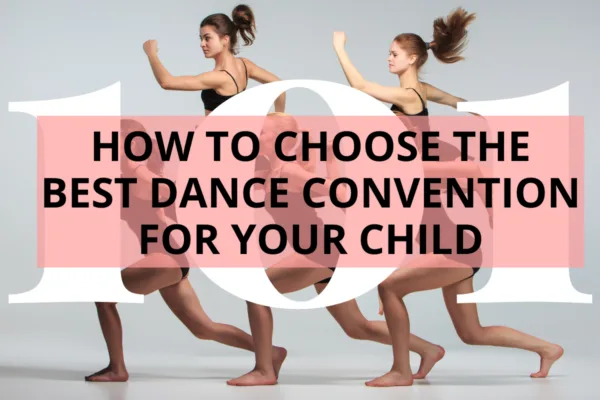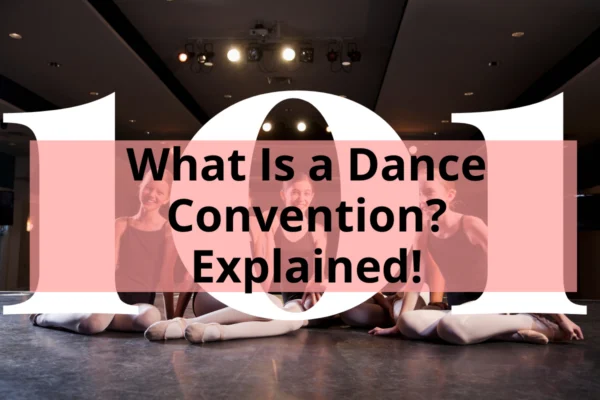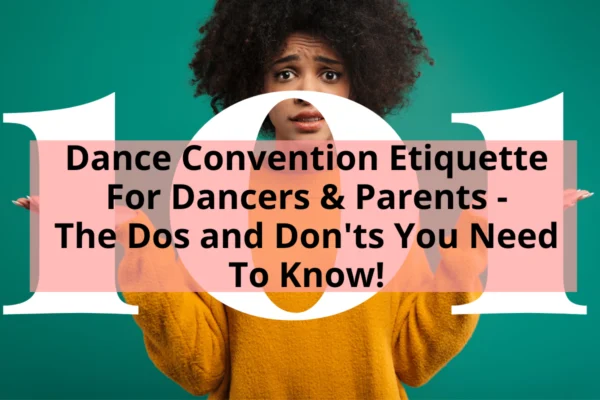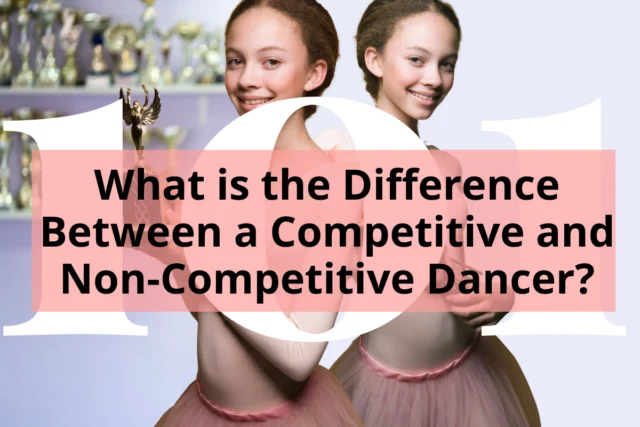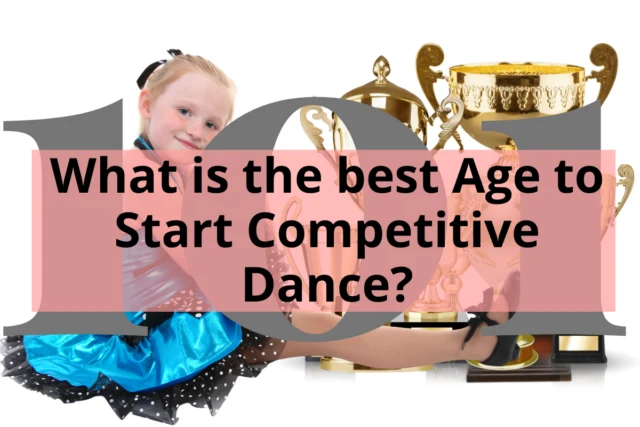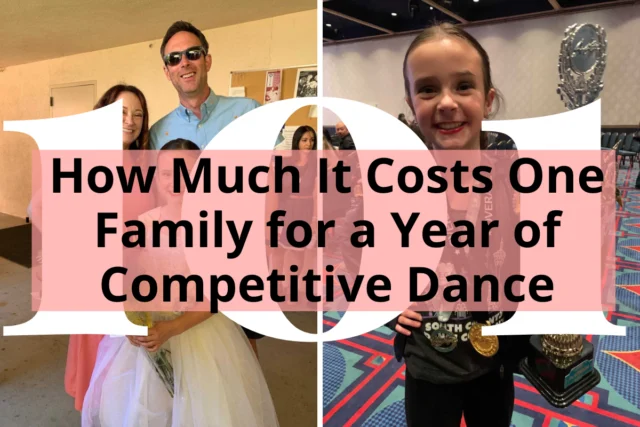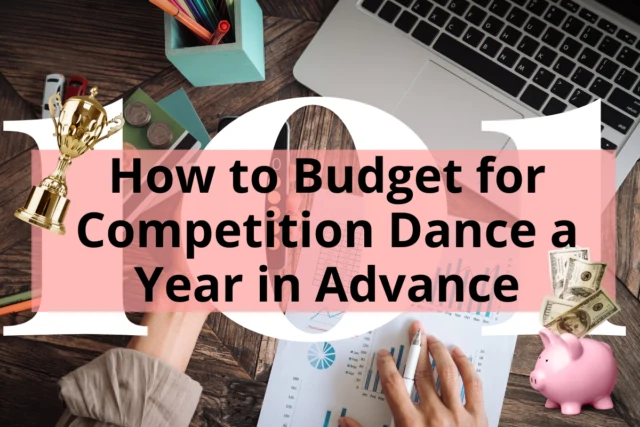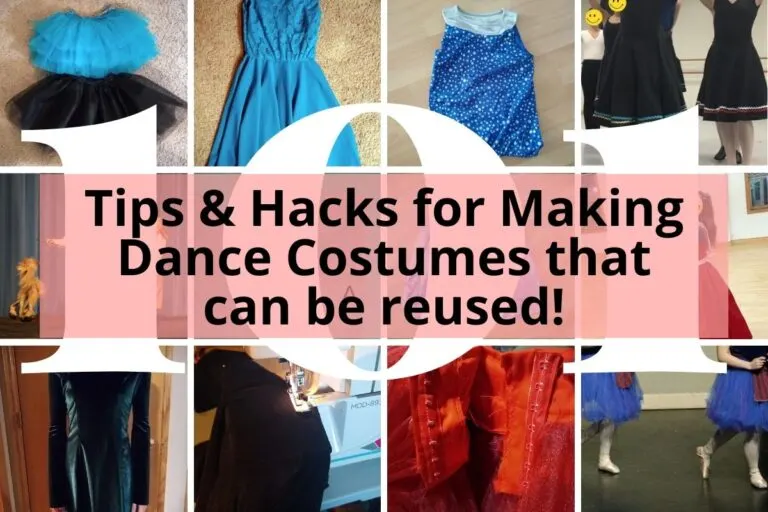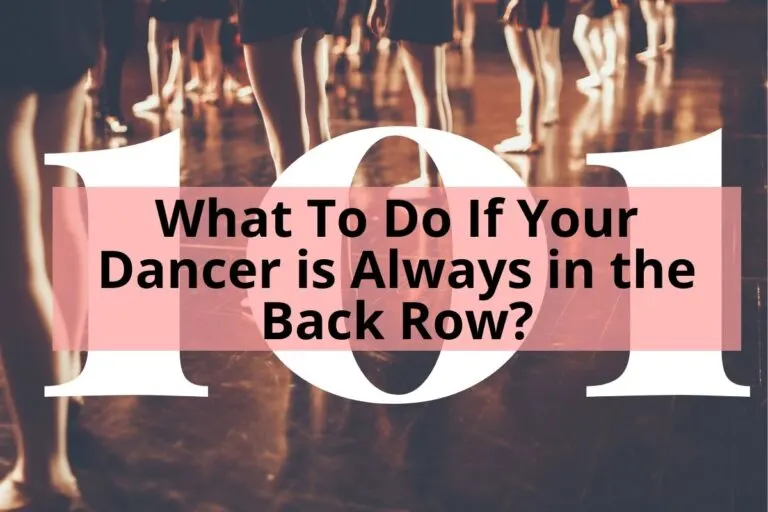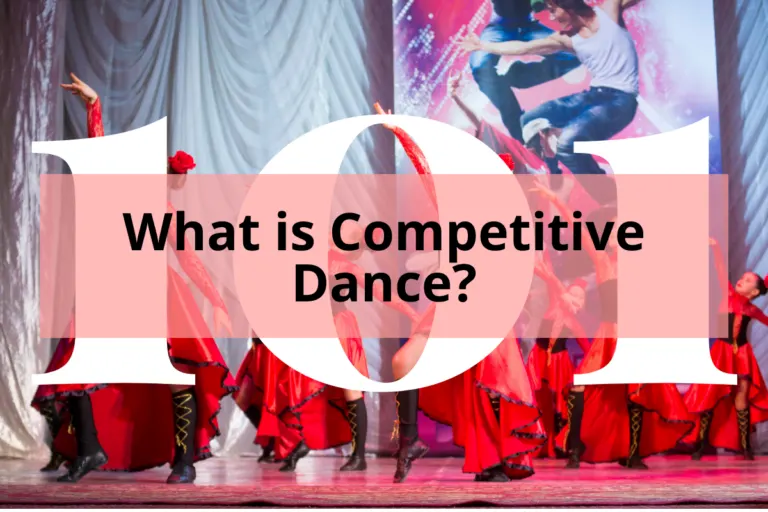If your dancer is two, three, four or even five years of age and you attend a dance studio that actively participates in competitive dance, then you might be wondering if you should be encouraging your child to be part of the competitive program.
The pros to starting competitive dance at a young age can be getting a head start on mastering performance skills and getting used to the competitive world. The cons can include early burnout, the costs, limiting free play time and the meltdowns or stress that can be placed on young children.

There are many children that compete in dance from a young age, but with any organized activity there are benefits and disadvantages to doing so which we will look into in detail in this article.
At what age can children start competitive dance?
The youngest many dance teachers will allow their students to be to start competitive dance is three years old.
Many dance and ballet teachers prefer their students to be of school starting age which is at least five or six years or older.
However, entering a competition is always dependent on the rules and regulations of the competition so you will need to check those before entering.
What are the age entry requirements for dance competitions?
All competitions are different but some competitions rather than stating a beginning age will have for example a section for children 4 and under, which doesn’t limit the starting age of the dancer.
Not all competitions will start this low with several having a 7 and under section instead for example. Put simply, yes this is done to deter teachers from entering very young children into that particular competition as they would do so knowing they could be up against children four years older!
And as many competitions require you to be entered under a dance studio, it is up to a dance teacher’s discretion as to whether they are willing to allow very young children to compete.
For more information about competitions check out Dance Competitions Explained – Everything You Want To Know!
How is the age of an entrant determined?
Every competition will have a different set of rules, but they will all have a set date at which the age of the participant is counted. For many it is the age the dancer is as of January 1st, meaning if they turn a year older January 2nd, that extra year is not counted. But it can depend on the time of year the competition is being held so always check the guidelines for each competition entered!
Interestingly most competitions in the USA use average age entry method for groups of dancers such as trios, duos or troupes. This is not common to countries such as the UK or Australia where participants use the set date method of the eldest dancer in a group to determine which age group section to enter.
For example in the US if the age of the competition section is for 5 to 6 year olds, a three year old could be part of the dance if when all the dancers ages when added up and averaged still fell between 5-6. If this dropped the average age to 4, the group could be allowed to dance in the 4 and under section.
Most competitions also then have a rule that states, a group, duo or trio can not dance in a section more than 1 level lower than the oldest dancer to ensure dance studios don’t just add in younger dancers to be able to enter lower-aged sections. This is a tactic some studios use to increase their chances of winning and may be why you have been invited to enter your younger dancer into competitions.
In saying that, your dancer would still need to be at a skill level compatible with the other dancers in the team so although it happens, most teachers are not actively grooming younger students for this purpose, but will genuinely feel your dancer is capable of competing.
If you are interested in learning how competitions are scored take a read of How Dance Competitions are Judged & Scored? What Parents Want To Know!
What are the benefits to starting your child in competitive dance when they are young?
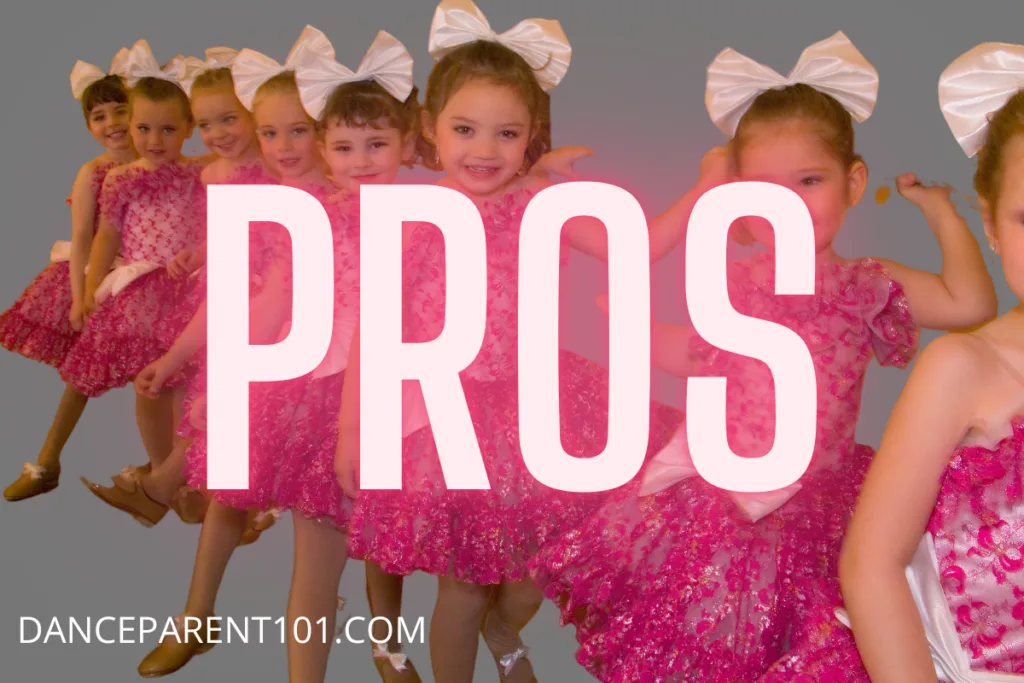
Although the ages of three, four or five are very young, there can be lots of benefits to allowing young dancers to enter into dance competitions such as:
1. It eases them into the world of competitive dance.
The youngest dancers will usually only be doing one or two competitions a year – or one or two dances at several competitions throughout the year. Their schedule is nowhere near as strenuous, and it allows them to develop discipline and a strong dance work ethic before they get into the most important years of dance.
2.There is plenty of time in the future to try other things!
If they decide they don’t like competing or even dance anymore after a year or two, they have plenty of time to move on to other things. There are tons of hobbies out there for them to try, and maybe competitive dance is just the first. If they are only 8 or 9 when they leave dance, they aren’t too old to do all kinds of other things.
3. Develops Performance skills
Britney Spears, Christina Aguilera and more all started performing and singing at an early age! So if your child absolutely loves to dance and perform, competitions will give them experience and skills that could turn into something bigger in the future?
4. Increases Chances of Mastery
The 10,000 Hour Mastery of a Skill Rule is a common rule of thumb, sensationalized by Malcom Gladwell in his book Outliers: The Story of Success. Although plenty of people have debated that less hours are needed to master a skill, the basic premise that a lot of practice and experience is needed to master anything is sound. The more experience your child can get, the better they can become!
What are the cons to starting your child in competitive dance when they are young?
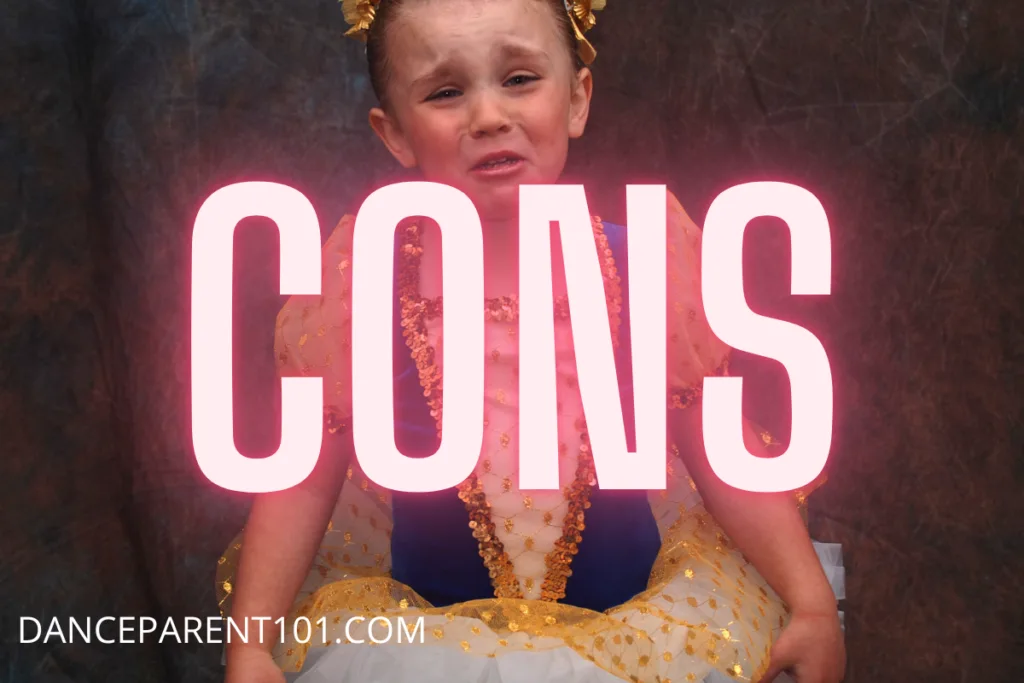
On the other hand, at the age of three or even four, many children are still in diapers and having afternoon naps. Starting in competitive dance at this young age could be detrimental to their overall growth and development.
1. It could be too much too soon!
Just because your child did well at their first recital and loves dance does not mean they are meant for competitive dance! Becoming a competitive dancer at some dance studios means more classes and more commitment.
2. Only Dance!
Some studios ask students on their competitive teams to not participate in other extracurricular activities. If your child is young, this may mean they are not given the opportunity to try other things, which is an important skill in itself to learn.
3. Early Burn Out
The commitment of competitive dance and the hours of training and stress that can be placed on young bodies can mean that some dancers who start young burn out. Not just physically but their passion and love for dance also can dwindle. If they achieve so much when they are young, when it comes to the teenage years, they may just wish to be a ‘normal teenager’ leaving your wondering why you put so much effort into the activity in the first place.
4. The Costs!!
- The costs!!! Competive dance is expensive! Check out our articles written by parents of competitive dancers in the US:
How Much It Costs One Family for a Year of Competitive Dance
The Real Costs Of Competitive Dance – A Parent’s Run Down
5. Organized activities vs Free Play Time
There is an ongoing debate by many parenting specialists that children today are placed into too many organized activities and not allowed to just play and be kids! This is because it is through play that children learn, and learning is at its highest intensity between the ages of 1-5.
In the first five years of life, experiences and relationships stimulate children’s development, creating millions of connections in their brains. In fact children’s brains develop connections faster in the first five years than at any other time in their lives. (raisingchildren.net.au)
Some might argue then, that competing from an early age would therefore set a child up to excel in dance when older, however, others would strongly disagree pointing out that it would mean many other important skills may not be discovered or learned and that many professional dancers never competed at a young age if at all!
6. Stress, Meltdowns and Tantrums!
Young children tire easily. They get hungry, cold, hot, tired etc… and instead of knowing how to fix their need, they have meltdowns and tantrums or even sometimes just flat out refuse to co-operate.
Not all young kids will have the patience and maturity to be able to cope with several rehearsals or classes a week, let alone long Competition days. Add onto that scratchy costumes, and sticky makeup on a hungry belly and you have a perfect recipe for a toddler or preschooler meltdown.
So even though your dancer might have shown many signs that they are ready and capable of dancing competitively at a young age, the reality of doing so may be entirely different!
You can check out some of the factors of readiness in our article
7. There is plenty of time for competitive dance in their future!
Have you noticed, there are a few more cons in this list then pros??
Ok, so honestly, I personally believe that young children should be given the opportunity to be children, and in my definition that does not include hitting the competitive dance circuit with them in their preschool years for long stressful although fun and exciting days at convention centers and hotels to perform on stage and be judged.
There is plenty of time for your dancer to start competing! I personally never did a dance competition until I was in my teens and went on to perform professionally.
My eldest daughter was meant to do her first one at age ten, but because of covid did not get the chance to until she was 12 and my youngest now seven, is competing in just one tap troupe throughout the year but mainly because her class worked so well together and learned and perfected a routine – they were never actually meant to compete!
At the end of the day, it is up to you and your dance teacher to determine if your child is ready for competitive dance. Hopefully, this list of pros and cons gives you a better understanding of the benefits and disadvantages of starting at an early age.
We have a plenty of articles about competitive dance on Dance Parent 101 so if you have more questions why not start your search here!
